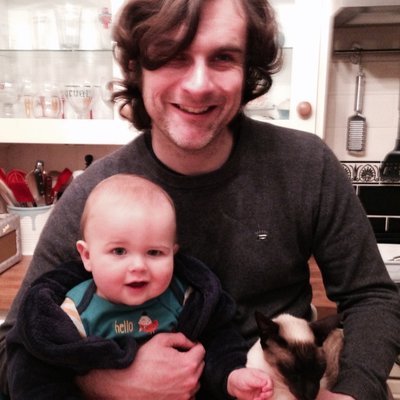Do derbies still matter?
Who cares about local pride in the race for the Champions League? As Arsenal face Spurs and Liverpool take on Everton, Nick Moore asks players and fans how important derbies are...
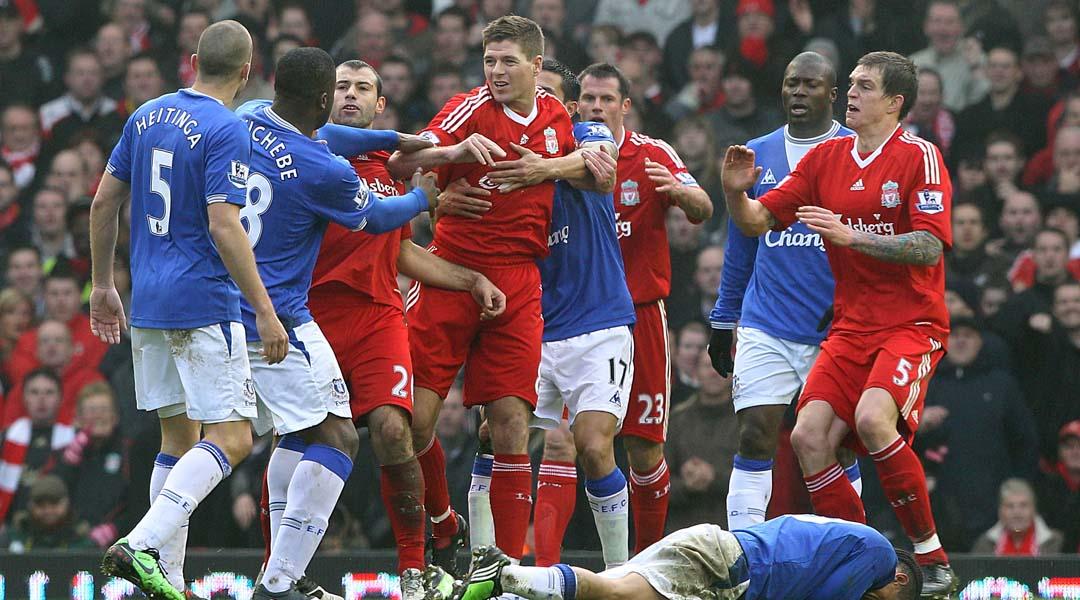
The battle for the soul of British football has been long, hard, and fought on several fronts. The erosion of ‘the people’s game’, some feel, began when Greg Dyke – then director of London Weekend Television – met in 1990 with representatives of English football's then ‘Big Five’ clubs: Liverpool, Everton, Arsenal, Spurs and Manchester United.
Dyke had an inkling that if popular sides could get more TV time, television itself could make more money – and that a break from the old Football League was the way to do it. The clubs agreed.
Two years and much meddling later, the infant Premier League was born, at the same time that the European Cup became the Champions League. Since then, money has ruled, and priorities have changed. Playing a weak side in a cup has become the norm. Finishing in the top four trumps a lesser trophy.
And among the things that arguably don’t matter as much as they used to, including for the Merseyside and North London giants who helped trigger the change, is derby day.
The players are less likely to be locals. For management, a midweek Champions League match might affect team selection. For the board, only the numbers count.
The match’s outcome, too, has less relevance. Everton vs Liverpool and Arsenal vs Tottenham – glorious fixtures, dripping in nostalgia – loom this weekend. But it is nearly three decades since these meetings were of an urgent, immediate importance to the title’s destiny.
The Big Five are no more: it's 27 years since the North London and Merseyside clubs comprised the top-four finishers. In 1986/87, Everton won the Today League Division One with 86 points, Liverpool were second on 77, and Spurs edged Arsenal out by a point with 71.
Get FourFourTwo Newsletter
The best features, fun and footballing quizzes, straight to your inbox every week.
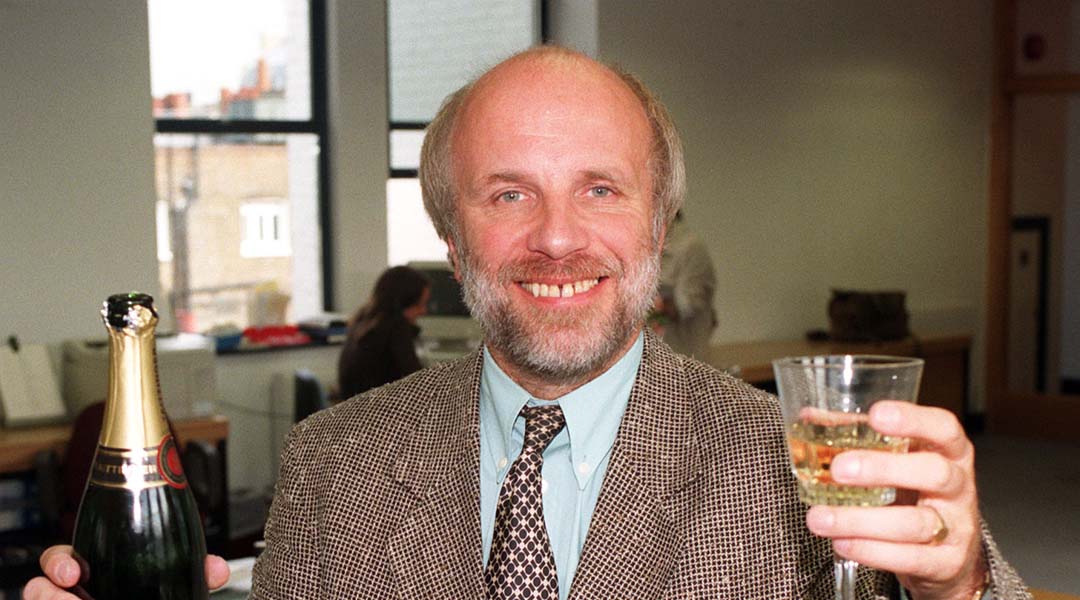
Certainly, Red and Blue would tussle for the top for a few more years. Yes, Arsenal have won the league, and Liverpool have come close over the last two decades. And true, Spurs and Everton have had fun spoiling their rival’s title bids with derby victories. But it’s not since the 1980s that both sides of both divides have had a real shot at winning it, and derby day’s relevance carried real power as well as local pride.
"The most excitable game of the season"
Whether the sides are fighting for titles, top-four tickets to the gravy train or 'merely' local pride, those who have played in the derbies know how important they are. Danny Murphy, who played for Liverpool in title clashes with Manchester United and local battles with Everton, could sense the difference.
"The United game and the Everton game mean different things to different people," Murphy tells FFT, "but growing up and going to the derby games, Everton meant a bit more to me.
Playing Everton meant more to me than facing Man United"
"It was always the most excitable game of the season. For me, Jamie Carragher, Steven Gerrard, Michael Owen – the local lads – we loved playing in that game. And I loved playing at Goodison.
"You're used to Anfield, but at Goodison, it’s really hostile, they’re so against you. I don’t think I lost one when I played. It was a fixture that stood out, and that you’d look for at the start of the season.
"I scored a winner in a derby at Goodison, too. It’s one people forget, because they always remember the three winners I got at Old Trafford. But for me the Goodison one stands out as possibly more special; it's the only time I managed that against them. It was the best goal out of all four. The winner, top corner, 25 yards.
"It was a wonderful moment. I played in a lot of derbies, and won quite a few, but scoring the winner really sticks in your mind. I got carried away and celebrated by jumping in the crowd. There’s a great photo of me celebrating with a Liverpool fan. One of them is embracing me like I’m his long-lost brother. It was joyous."
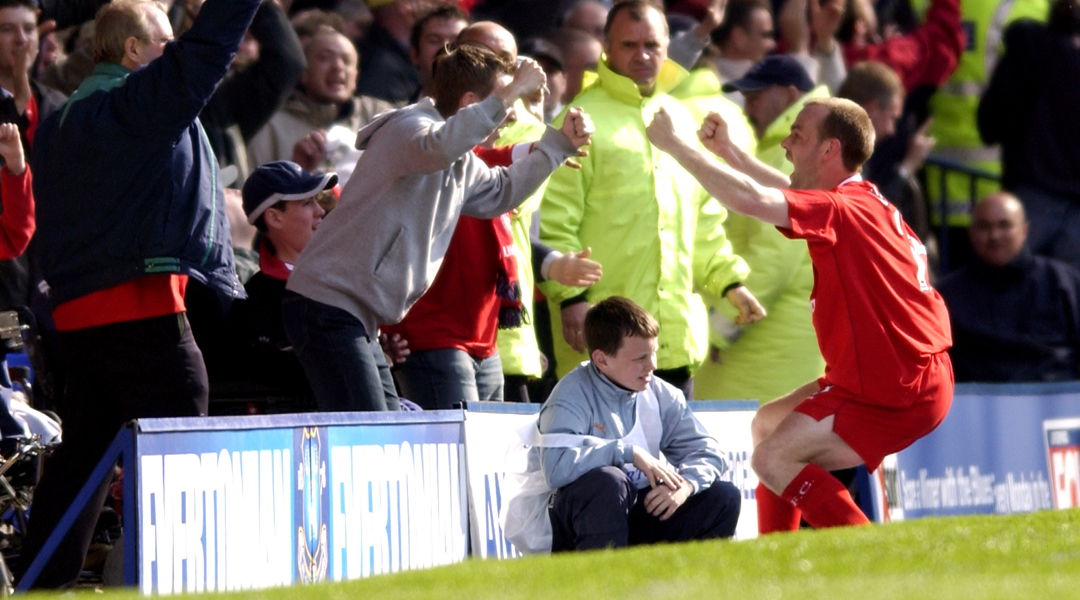
"You're desperate to win"
Andy Hinchcliffe played in blue in both the Merseyside and Manchester derbies, and he notes a derby win can kickstart your season – something that wouldn't go amiss for any of this weekend's four parochial protagonists. "Both Everton and Liverpool seriously need to get their seasons started. They're below par, and badly need a boost. Lose this one and your season is looking really poor. I think there will be fireworks.
"Football has changed, and players probably do see themselves in a different way and see the derby in a different way," he admits. "On paper, for many it is just another game. But I think that only lasts until half an hour before kick-off – and then the derby brings something out in you.
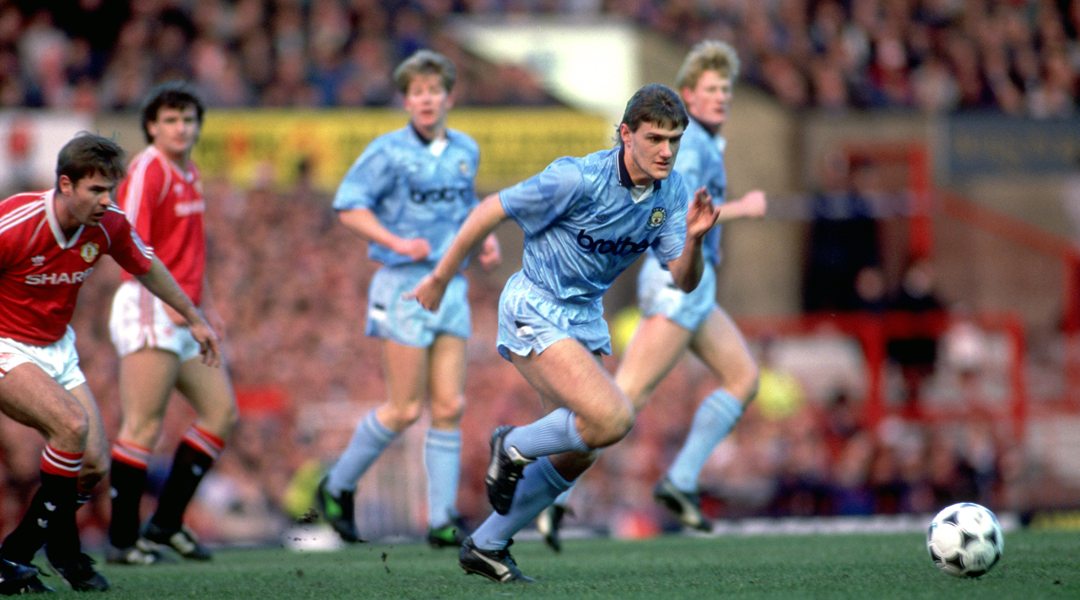
Football has changed. For many players, the derby is just another game"
"Yes, it had more of an edge when both sides were in contention for the league, and that significance has faded. But you can feel the crackle of a Merseyside derby. It had more of an edge than to the Manchester derby, for me. And it still seriously matters. You're desperate to win."
Hinchcliffe, who famously smashed home in City’s fabled 5-1 defeat of United in 1989, is also well aware of the fact that a great derby performance can bring you a little slice of immortality.
"You do get remembered for what you do in those games," he says. "It’s 25 years ago since my goal – bloody hell, that went quickly! – but fans of both City and United remind me all the time. If you’re only going to score one goal in your career, of course you go for the derby. It’s in your fibre. I don’t think that will ever change."
"Seeing them seethe is great fun"
Whether or not all players share that passion, the vast majority of fans still seek out the derbies first when the fixtures are released – and some would trade final league position for those glorious victories.
"I don’t expect we’ll finish above them this season, so I’d take winning both derbies and finishing below them," says Spurs supporter John Muir.
"You have to enjoy winning, don’t you? Seeing them seethe is always great fun. They pretend they aren’t bothered, but they absolutely hate losing to us. They obsess about us as much as we obsess about them.
They pretend they aren’t bothered, but they absolutely hate losing to us"
"My favourite memory is coming back from 2-0 down at the Tarquin Dome to win 3-2 in 2010/11. The crowning moment was Old Man Wenger hurling his water bottle at the floor like a sulking toddler."
Arsenal fan Tony Attwood, perhaps protesting too much, places less importance on the clash: "It's rare that we lose, so it doesn’t really affect me much. We expect to win, so it’s no big deal."
He wouldn't accept losing both derbies as long as Arsenal finish above Spurs, nor would he swallow finishing below them in exchange for two derby wins – but interestingly would "to a degree" accept two defeats and finishing below them as long as they were both in the top four, because "to achieve such a position I guess we’d have sorted out the Works Team of the International Petroleum Company, and the Gazprom Works XI, so there would be compensation."
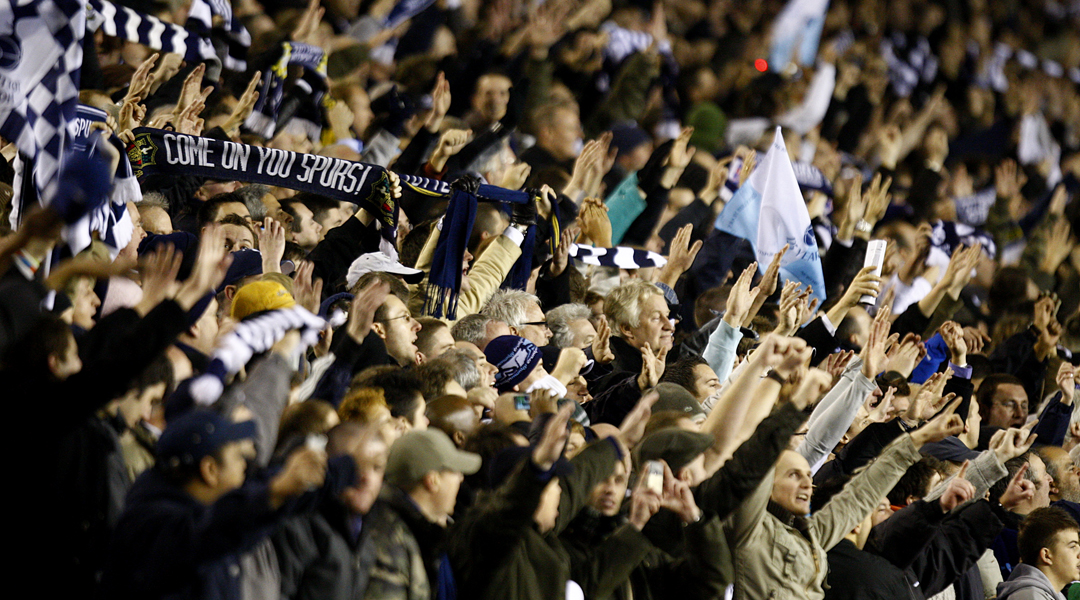
That tongue-in-cheek answer displays a wider antagonism towards those rivals who threaten Arsenal's chance of a 19th consecutive top-four finish, but Attwood still fears the flame-war possibility of a derby defeat: "The internet trolls and their allies in the media would crawl out of the woodwork hurling abuse at our players.”
Spurs 0-6 Arsenal 6 Mar 1935
Spurs 5-0 Arsenal 25 Dec 1941, 4 Apr 1983
Liverpool 0-5 Everton 3 Oct 1914, 9 Apr 1909
Liverpool 6-0 Everton 7 Sep 1935
Unsurprisingly, Muir disagrees. "The media love-in surrounding Arsenal is cringeworthy," he says. "If they win heavily, they’d probably stop all other broadcasting to show live coverage of Wenger taking his bins out. Their mob seem to think there’s some kind of agenda against them, but that’s bollocks. No club gets more undue love from the press, and their seedy past is almost never mentioned."
Attwood isn’t having it. "I like it when people come out with the old tales like Arsenal bribing their way into the first division and so on," he says. "We can cut them down in five seconds because we have actually done the research. I chair the Arsenal History Society. I’ve not come across a Tottenham History Society that has done original research, as we have done, so they can’t readily answer back."
Agree to disagree, eh, gents?
"You just avoid anything to do with football"
In Merseyside, meanwhile, proximity of rivals means the match is hugely hyped beforehand. "For me, it’s still the biggest match of the season," says Liverpool fan Mike Evans. "The United game may be more important in terms of where you finish, and you definitely hate United more, probably because you have a lot more friends and family who support Everton. You hate Everton, but deep down you're close to a lot of their fans.
"But that's the reason the derby matters the most. You are literally surrounded by Evertonians. We can avoid United fans and Chelsea fans in our day-to-day lives. With Everton, if we lose, you get slaughtered."
You're literally surrounded by Evertonians. If we lose, you get slaughtered"
Evertonian Rob Fisher is similarly aware of the social impact derby defeat can have: "With our track record, I try to wait for the result before saying anything," he says ruefully.
"If someone is giving it the big one beforehand and we win, I'll react in kind, but otherwise I’ll just have a permanent smile for a day or two. If we get hammered, it’s a nightmare. You just avoid anything to do with football for a few days. We lost 4-0 last season and it does affect fan and team morale for a while. That said, I’d rather lose both derbies and finish above them. It is more important."
Fisher's final quote acknowledges a truth rarely spoken on derby day: this weekend’s clashes mean less to boardroom bean-counters when compared to where a side finishes, and they may not decide the destiny of the title in the same way they might have done in the halcyon days of Merseyside and north London football.
But when it’s all boiled down to basics, it matters as much as ever when Monday morning comes around and you’ve got either a smug rival getting in your face, or a cowering inferior to mock and belittle. "There's one Gooner at work, but he’s not too bad,” says Spurs fan Muir. "He oddly always seems to be out of the office on the Monday after we beat them, though…"
Nick Moore is a freelance journalist based on the Isle of Skye, Scotland. He wrote his first FourFourTwo feature in 2001 about Gerard Houllier's cup-treble-winning Liverpool side, and has continued to ink his witty words for the mag ever since. Nick has produced FFT's 'Ask A Silly Question' interview for 16 years, once getting Peter Crouch to confess that he dreams about being a dwarf.
